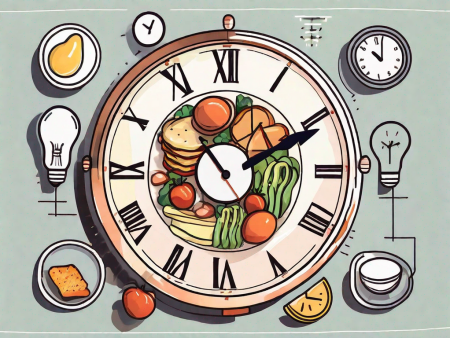Discover the medications that may be causing fatigue and learn how to manage this common side effect.
Are There Medications That Can Cause Fatigue?
Have you ever noticed that after taking certain medications, you feel like you could doze off right then and there? It’s not just your imagination – some medications can actually cause fatigue as a side effect. In this article, we’ll explore the world of medication-induced fatigue, understand why it happens, and discover ways to manage and mitigate its effects.

Understanding Medication-Induced Fatigue
Before we dive into the nitty-gritty, let’s first have a clear picture of what we mean by “medication-induced fatigue.” Fatigue, in simple terms, is that overwhelming feeling of being tired, even when you’ve had a good night’s sleep. It can zap your energy, make concentration difficult, and leave you feeling downright sluggish.
So, how can medications be responsible for this unwelcome visitor? Let’s explore the science behind it and see just how certain medications disrupt our energy levels.
Defining Fatigue and Its Symptoms
Fatigue can manifest in various ways, but common symptoms include excessive daytime sleepiness, lack of motivation, difficulty concentrating, and feeling physically drained. It’s like carrying around a heavy backpack full of tiredness that just won’t budge!
While we all experience fatigue from time to time, medication-induced fatigue can be particularly challenging because it accompanies our daily dose of necessary drugs. Talk about an unexpected twist! Let’s dig deeper and uncover the mechanisms behind this sneaky side effect.
The Science Behind Medication-Induced Fatigue
Believe it or not, the way medications cause fatigue varies from drug to drug. Some medications directly affect neurotransmitters in the brain, which can lead to drowsiness and fatigue. Others may disrupt the hormonal balance in our bodies, causing a drop in energy levels.
But don’t fret! Understanding how fatigue happens is the first step towards finding effective ways to manage it. So, let’s dive into the intriguing realm of common medications that can leave us feeling like we’ve run a marathon while stuck in a never-ending Zoom meeting!
One common type of medication that can induce fatigue is antihistamines. These drugs, commonly used to treat allergies, work by blocking the effects of histamine, a chemical in the body that causes allergic reactions. However, they can also cross the blood-brain barrier and interfere with certain neurotransmitters, such as acetylcholine, which plays a role in wakefulness and alertness. As a result, antihistamines can make you feel drowsy and fatigued.
Another group of medications known to cause fatigue are certain antidepressants. Selective serotonin reuptake inhibitors (SSRIs), commonly prescribed for depression and anxiety, can affect the levels of serotonin in the brain. While these drugs can be highly effective in managing mental health conditions, they can also lead to fatigue as a side effect. The exact mechanism behind this fatigue is not fully understood, but it is believed to be related to the impact of serotonin on sleep-wake cycles and overall energy regulation.
Additionally, medications used to manage chronic pain, such as opioids, can also contribute to medication-induced fatigue. Opioids work by binding to opioid receptors in the brain and spinal cord, effectively reducing pain signals. However, they can also affect the central nervous system and lead to drowsiness and sedation. This can make it challenging for individuals taking opioids to maintain their energy levels and stay alert throughout the day.
It’s important to note that medication-induced fatigue is not limited to these examples. Many other medications, including certain antihypertensives, anticonvulsants, and muscle relaxants, can also have fatigue as a potential side effect. The specific mechanisms behind each medication’s impact on energy levels may vary, but the end result is often the same: feeling tired and lacking energy.
So, the next time you find yourself feeling unusually fatigued while taking medication, remember that you’re not alone. Medication-induced fatigue is a real and common side effect that can affect individuals from all walks of life. By understanding the science behind it and recognizing the medications that can contribute to fatigue, you can work with your healthcare provider to find strategies to manage this side effect and improve your overall well-being.
Common Medications That Can Cause Fatigue
Here, we’ll explore the world of over-the-counter and prescription drugs and their potential fatigue-inducing effects. Brace yourself for a potentially long list—it’s time to find out if your trusty medications might have a hidden side effect!
Over-the-Counter Drugs and Fatigue
While we often think of over-the-counter drugs as harmless, they can sometimes pack an unexpected punch in the form of fatigue. Medications like antihistamines, found in allergy relief pills, can cause drowsiness as they cross the blood-brain barrier. It’s like having a cozy blanket thrown over your brain!
But did you know that antihistamines don’t just affect your brain? They also have an impact on other parts of your body. These drugs work by blocking the action of histamine, a chemical that your body releases in response to an allergic reaction. By blocking histamine, antihistamines help alleviate symptoms like sneezing, itching, and runny nose. However, this blocking action also affects other systems in your body, including your nervous system. As a result, you may experience drowsiness and fatigue.
Cough and cold medicines may also contain ingredients that kick your energy levels down a notch. So, make sure to read those tiny labels on the bottles before you blame that afternoon slump on not enough coffee!
When you have a cough or a cold, it’s common to reach for over-the-counter cough and cold medicines to relieve your symptoms. These medications often contain ingredients like dextromethorphan, which suppresses your cough reflex, and pseudoephedrine, which helps reduce nasal congestion. While these ingredients can provide temporary relief, they can also have side effects, including drowsiness and fatigue. So, while you may find relief from your cough or stuffy nose, you might also find yourself feeling a bit more tired than usual.
Prescription Drugs and Their Fatigue-Inducing Effects
Prescription drugs can also join in on the fatigue party. Some antidepressants, such as selective serotonin reuptake inhibitors (SSRIs), may cause drowsiness initially. So, don’t be surprised if you find yourself reaching for an extra cup of joe during the first few weeks of treatment. Your body just needs some time to adjust to the new kid on the block!
Antidepressants are commonly prescribed to help manage conditions like depression, anxiety, and obsessive-compulsive disorder. SSRIs, a type of antidepressant, work by increasing the levels of serotonin, a neurotransmitter that plays a key role in regulating mood. While these medications can be highly effective, they can also have side effects, including drowsiness and fatigue. It’s important to remember that these side effects are usually temporary and tend to improve as your body adjusts to the medication.
Other medications, like beta-blockers for heart conditions or certain pain medications, can also have fatigue as a potential side effect. It’s like they’re saying, “Hey, I’ll help you with your ailment, but I’ll also sprinkle in a bit of tiredness just for fun!” Thanks, medication, we really needed that!
Beta-blockers are commonly prescribed to manage conditions such as high blood pressure, heart failure, and certain types of arrhythmias. These medications work by blocking the effects of adrenaline, which helps reduce the workload on the heart and lower blood pressure. While beta-blockers can be beneficial for managing these conditions, they can also cause side effects, including fatigue. This fatigue is believed to be a result of the medication’s impact on the nervous system, which regulates energy levels and alertness.
When it comes to pain medications, some opioids and muscle relaxants can also contribute to fatigue. These medications are often prescribed to manage moderate to severe pain, such as that caused by injuries or chronic conditions. While they can provide much-needed relief, they can also have sedating effects, leading to drowsiness and fatigue. It’s important to follow your healthcare provider’s instructions carefully and be aware of the potential side effects of these medications.
The Role of Dosage and Duration in Medication-Induced Fatigue
Now that we know which medications can turn us into sleepy sloths, let’s dive into how dosage and duration of use come into play. Yes, my friends, it’s not just about what you take, but how much and for how long you take it!
How Dosage Impacts Fatigue Levels
Just like with a spicy dish, the dosage can make all the difference when it comes to medication-induced fatigue. Higher doses of certain medications may increase the likelihood of feeling tired and sluggish. It’s like turning up the volume on fatigue and letting it play at full blast!
So, if you suspect that your medication might be the culprit behind your sudden desire for midday naps, don’t hesitate to discuss your dosage with your healthcare professional. They might be able to adjust it to find the perfect balance between managing your condition and keeping your energy levels up.
The Effect of Long-Term Medication Use on Fatigue
We all know the famous saying that patience is a virtue. Well, the same goes for long-term medication use and its impact on fatigue levels. Over time, our bodies can become more tolerant to certain medications, resulting in reduced fatigue as a side effect. It’s like our internal energy-saving mode slowly kicks in!
But keep in mind that these adjustments don’t happen overnight. It’s a gradual process that requires patience and close monitoring by your healthcare team. So, hang in there and let your body work its magic!
Managing and Mitigating Medication-Induced Fatigue
Now that we’ve explored the world of medications and fatigue, let’s turn our attention to the light at the end of the drowsy tunnel—managing and mitigating medication-induced fatigue. Yes, my friends, there is hope!
Lifestyle Changes to Combat Fatigue
When fatigue comes knocking, it’s time to show it who’s boss! Simple lifestyle changes can make a big difference in how you feel. Ensuring you get enough quality sleep, maintaining a balanced diet, and incorporating regular exercise into your routine can help fight fatigue. It’s like creating your very own superhero squad against the mighty fatigue monster!
Additionally, practicing stress-reducing techniques, such as meditation or deep breathing exercises, can give your energy levels a much-needed boost. So, take a moment to pause, breathe, and say “adios” to those yawns!
Medical Interventions for Medication-Induced Fatigue
For some, lifestyle changes may not be enough to kick medication-induced fatigue to the curb. In these cases, medical interventions may be necessary. Your healthcare professional can explore alternative medications or adjust dosages to minimize fatigue without compromising your treatment goals. It’s like a customized energy-boosting plan, catered specifically to your needs!
In some cases, supplements or even stimulants prescribed by your doctor may be beneficial. These can help counteract the drowsiness caused by certain medications and get you back on your feet feeling like your energetic self once again. Just remember, always consult with your healthcare professional before making any changes to your medication regimen!
When to Consult a Healthcare Professional
While fatigue can be a common side effect of medication, it’s essential to recognize when it might be more than just an annoyance. Here are some signs that it’s time to schedule a check-up with your healthcare professional:

Recognizing Serious Fatigue Symptoms
If your fatigue becomes severe or persistent, impacting your daily life and causing significant distress, it’s time to seek professional guidance. Your healthcare professional can help identify any underlying issues and develop a comprehensive plan to manage your fatigue effectively. Together, you can conquer fatigue and kick it to the curb!
Preparing for Your Doctor’s Appointment
Before your doctor’s appointment, it’s a good idea to come prepared. Make a list of all the medications you’re currently taking, including over-the-counter drugs, and note any changes in your fatigue levels. This will help paint a clearer picture and guide your healthcare team in finding the best solution for you. It’s like giving them a map to navigate through the tricky terrain of your fatigue!
Remember, you’re not alone in this. Your healthcare professional is there to support you, so don’t hesitate to reach out and start the journey to banishing medication-induced fatigue once and for all!








Your point of view caught my eye and was very interesting. Thanks. I have a question for you.